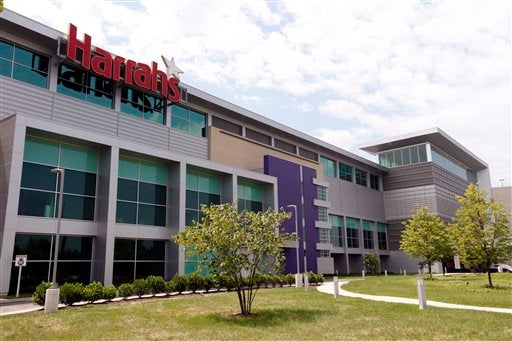What is a Keystone Opportunity Zone?

Harrah's Casino in Chester, Pa. (AP Photo/Matt Rourke)
A Keystone Opportunity Zone is land designated by local communities and approved by the state, as part of an economic development incentive program.
One in a series explaining key terms and concepts of Pennsylvania government. Today’s topic: Keystone Opportunity Zones.
What’s a Keystone Opportunity Zone?
A Keystone Opportunity Zone (KOZ) is land designated by local communities and approved by the state, as part of an economic development incentive program. Companies that develop the land are exempt from certain state and local taxes for a period of time. The state gives out these tax breaks so cities and towns can attract companies to vacant or contaminated sites. Spokespeople for the Pa. Department of Communithy and Economic Development (DCED) said they do not currently keep electronic records on the number and location of KOZs.
For example, Harrah’s Philadelphia Racetrack and Casino in Chester is located on a former KOZ in Chester. In 2006, Harrah’s built the casino on a brownfield site, the former home of the Sun Shipbuilding & Drydock Company. The company was exempt from certain taxes for eight years. It hired about 1600 people. Four hundred of its employees live outside Pennsylvania. The KOZ, along with the tax breaks, expired in 2013.
Some other examples include the Butz Corporate Center, which moved to a KOZ in Allentown in 2006 and hired about 150 people, and Sintergy Inc., a metal components manufacturer that moved its manufacturing plant to Reynoldsville Industrial Park in December 2010 to take advantage of a KOZ. Sintergy retained its current employees and hired a few more.
Some argue that states don’t do a good job of monitoring the effectiveness of incentives like the KOZ program. In 2009, the state’s Legislative Budget and Finance Committee analyzed the program. Its report was scathing. It found that KOZ program records are “poorly organized and incomplete,” and that DCED doesn’t monitor the type of business activities or number of jobs companies generate. The committee also found that many companies weren’t creating jobs or luring new investment capital, and the program didn’t require them to.
DCED has changed the KOZ program since then. Now, a company that relocates to a KOZ must increase its full-time employment by 20 percent within the first full year of operation or invest 10 percent of the prior year’s gross revenues in the property. There’s no rule saying employees have to live in Pennsylvania. The Department also now monitors the number of jobs a company has created and retained.
WHYY is your source for fact-based, in-depth journalism and information. As a nonprofit organization, we rely on financial support from readers like you. Please give today.


